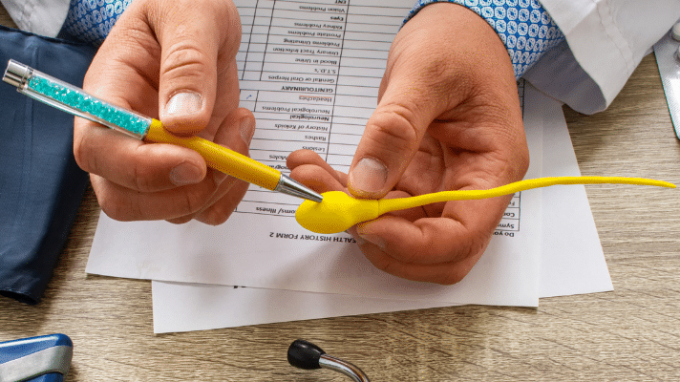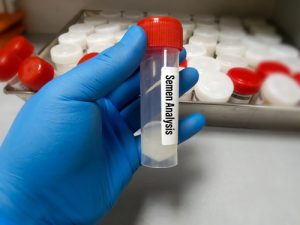If you and your partner are trying to conceive, having a low or compromised sperm count can complicate the process and cause frustration. Fortunately, you have options for treatment that can increase your chances of conceiving. Read on to see more about the condition known as asthenospermia.
What Is Asthenospermia?
Asthenospermia is a condition involving low sperm motility or compromised reproductive function. Certain factors can have a negative effect on a couple’s ability to conceive:
- Sperm volume
- Shape
- Motility
- Ability to penetrate cervical mucus
- Nuclear decondensation
- Zona pellucida binding
- Acrosome reaction
It is estimated that nearly 20 percent of couples experience some form of asthenospermia. Receiving an accurate diagnosis from your doctor and following recommended protocols for increasing motility will help to correct conditions that may prevent conception.
Causes of Asthenospermia
The exact cause of low sperm motility can vary. Some men have an underlying genetic cause, while others have an underlying medical diagnosis that can contribute to fertility issues. Environmental and lifestyle factors can also play a role in the condition, such as smoking and drinking alcohol excessively. If you and your partner are trying to conceive, consider cutting down on activities like smoking and drinking to improve sperm motility.
 Diagnosis
Diagnosis
Motility can be tested through routine semen analysis. Your doctor will use this sample to examine male genital health, accessory organs and ejaculation. If it is found that you do have low motility, your doctor will prescribe a protocol to improve and correct your condition.
Treatment
You have a number of options for treatment and correction of asthenospermia. Correcting certain lifestyle factors should take precedence before considering supplementation or prescription medications. Consider making changes to the following:
- Your exercise routine: Not only is exercising good for your health, but it is also able to boost testosterone levels and naturally boost fertility. Avoid periods of long, strenuous exercise, however, as this can yield the opposite result.
- The amount of cell phone exposure you receive: The use of cell phones can decrease semen quality by decreasing sperm count and motility. Be mindful of where you store your cell phone when not in use, and turn it off whenever possible to prevent excess electromagnetic frequency exposure.
- The amount of alcohol you consume: The consumption of alcohol can damage sperm production in several ways. Compromised liver function has a negative effect on the body’s ability to produce sperm, and it can in some cases poison the sperm-producing cells in testicles. When trying to conceive, limit your alcohol intake to improve your chances.
- Smoking habits: The use of cigarettes and other tobacco products is linked to decreased sperm volume, sluggish movement and poor formation and shape. It can also negatively affect DNA structures that form the building blocks of healthy sperm cells. If possible, stop smoking and using tobacco products when trying to get pregnant.
Once a healthier stage is set in your life, know that there are supplements that can help with motility. Vitamin E and selenium are known to significantly increase both sperm count and velocity; taken in the right combinations, this may be the only additional protocol you need to correct the problem. In cases where medical intervention is needed, the use of prescription drugs that balance hormone levels will improve your condition.
You Have Options
It is possible to conceive naturally with the use of motility interventions and reproductive technologies. In-vitro fertilization and in-utero fertilization bypass the need for sperm to swim and penetrate on their own, making your chances of success significantly higher. If you and your partner have been struggling to conceive for twelve months or longer, talk to a doctor about your options for testing and treatment that will improve your chances of conception. It can be a frustrating process for couples who struggle with low motility, and you are not alone. With early intervention and daily lifestyle changes, you are going to see success as you embark on an exciting new journey to parenthood.

 Diagnosis
Diagnosis


